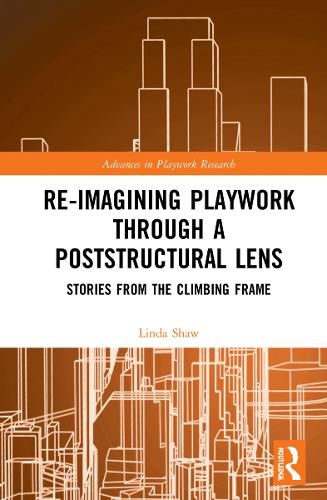Readings Newsletter
Become a Readings Member to make your shopping experience even easier.
Sign in or sign up for free!
You’re not far away from qualifying for FREE standard shipping within Australia
You’ve qualified for FREE standard shipping within Australia
The cart is loading…






This book explores how poststructural theory can make an important contribution to the growing body of work on playwork as an academic field of practice and research.
Drawing on theoretical concepts used by sociologists and philosophers, such as the sociological imagination (Mills); hauntings and the fictive (Derrida) and technologies of power and the self (Foucault), the text considers how these devices may be methodologically productive for playwork research. It reframes research into children and childhood as a process in which research and practice are connected but diverse skills. The book raises questions around power and voice, and highlights the complexity of research which involves human participants and their roles as researcher and/or researched. Chapters relate concepts from post-structural, feminist research and frame them within the context of playwork practice through the use of vignettes constructed from stories told by playwork practitioners and the children with whom they work.
A valuable addition to an emerging academic field, this book will be of great interest to researchers and students in the fields of playwork research, education and youth studies, early childhood students, and the sociology of education.
$9.00 standard shipping within Australia
FREE standard shipping within Australia for orders over $100.00
Express & International shipping calculated at checkout
This book explores how poststructural theory can make an important contribution to the growing body of work on playwork as an academic field of practice and research.
Drawing on theoretical concepts used by sociologists and philosophers, such as the sociological imagination (Mills); hauntings and the fictive (Derrida) and technologies of power and the self (Foucault), the text considers how these devices may be methodologically productive for playwork research. It reframes research into children and childhood as a process in which research and practice are connected but diverse skills. The book raises questions around power and voice, and highlights the complexity of research which involves human participants and their roles as researcher and/or researched. Chapters relate concepts from post-structural, feminist research and frame them within the context of playwork practice through the use of vignettes constructed from stories told by playwork practitioners and the children with whom they work.
A valuable addition to an emerging academic field, this book will be of great interest to researchers and students in the fields of playwork research, education and youth studies, early childhood students, and the sociology of education.